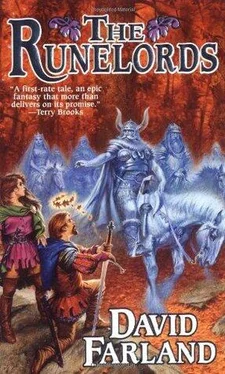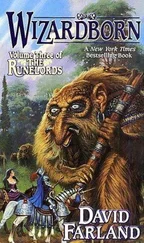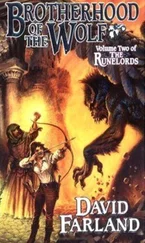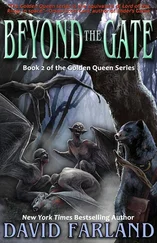David Farland - The Sum of All Men
Здесь есть возможность читать онлайн «David Farland - The Sum of All Men» весь текст электронной книги совершенно бесплатно (целиком полную версию без сокращений). В некоторых случаях можно слушать аудио, скачать через торрент в формате fb2 и присутствует краткое содержание. Жанр: Фэнтези, на английском языке. Описание произведения, (предисловие) а так же отзывы посетителей доступны на портале библиотеки ЛибКат.
- Название:The Sum of All Men
- Автор:
- Жанр:
- Год:неизвестен
- ISBN:нет данных
- Рейтинг книги:3 / 5. Голосов: 1
-
Избранное:Добавить в избранное
- Отзывы:
-
Ваша оценка:
- 60
- 1
- 2
- 3
- 4
- 5
The Sum of All Men: краткое содержание, описание и аннотация
Предлагаем к чтению аннотацию, описание, краткое содержание или предисловие (зависит от того, что написал сам автор книги «The Sum of All Men»). Если вы не нашли необходимую информацию о книге — напишите в комментариях, мы постараемся отыскать её.
The Sum of All Men — читать онлайн бесплатно полную книгу (весь текст) целиком
Ниже представлен текст книги, разбитый по страницам. Система сохранения места последней прочитанной страницы, позволяет с удобством читать онлайн бесплатно книгу «The Sum of All Men», без необходимости каждый раз заново искать на чём Вы остановились. Поставьте закладку, и сможете в любой момент перейти на страницу, на которой закончили чтение.
Интервал:
Закладка:
For a moment, Borenson considered letting them kill him.
But instantly an image of Myrrima formed in his mind: her silk dress the color of clouds, the mother-of-pearl combs in her dark hair. He recalled the smell of her, the sound of her laugh when he'd kissed her roughly outside her little cottage.
He needed her now, and saw the nomen as mere extensions of Raj Ahten. They were his agents. He'd brought them here to kill, and though Borenson's men had driven and scattered the nomen through the hills, they would become a scourge on this land for months.
It did not matter to Raj Ahten. The nomen would do his will as they sought to feed on human flesh. They would do all the killing he'd asked, but they'd take the weak first—the children from cradles, the women at their wash.
The first noman rushed Borenson, hurled its spear at close range, so that the stone blade shattered against Borenson's mail.
Quick as a snake, Borenson drew the battle-axe at his hip, began swinging.
He was a force warrior to be reckoned with. He cleaved the arm off one noman, spun and hit another full in the chest.
He began smiling as he did so, considered each move in the battle. It was not enough to kill the nomen; he wanted to do it well, to turn the battle into a dance, a work of art. When one noman rushed him, Borenson slammed his left mailed fist into its fangs, then grabbed its tongue and pulled.
Another tried to run. Borenson gauged its pace, watched the bobbing of its upright ears, and threw his axe with all his might. It was not enough to split the beast's skull; he wanted to do it perfectly, to hit the target just so, so the bone would make that splitting noise and part like a melon.
The noman went down. Only two stood, rushing him as a pair, spears ready. Without his endowments of sight, Borenson would never have been able to evade those black spears.
As the nomen lunged, Borenson simply slapped the speartips away, so the jabs went wide, then he grabbed a spear, launched himself forward and spun, impaling both beasts through the navel.
Both nomen stood in shock, pinned together.
When he finished, Borenson stepped back and observed the nomen. They knew they would die. They couldn't heal from such a wound. The creature in back fainted, dragging its companion to its knees.
Borenson walked on, considered the way he'd fought, the precise movements. His deed had been as close to poetry or dance as he could achieve.
He began laughing, chuckling a throaty rumble, for this was the way war should have been—men fighting for their lives. A good man struggling to protect home and family.
The skirmish itself somehow seemed more a balm for his troubles than the rain. Borenson retrieved his axe and helm and hurried to his horse, running through the downpour.
I will not wash these hands, he told himself. I will not wash my face, until I stand before my prince and my king again, so they can see what they have done.
Thus Borenson took horse and began racing through the darkness. Four miles down the road east of town, he found a dead knight of Orden, took the man's lance.
His mount could not equal Gaborn's fine hunter. But the road was clear, if somewhat muddy, and on a night like this, with rain to cool them, Borenson's horse could run forever.
So Borenson raced over the hills until the rain stopped and the clouds dispelled and stars shone bright and clean.
He'd planned to head to Longmont. But when the road branched both east and south, the fey mood was still on him, and he suddenly turned east, toward Bannisferre.
Dawn found him riding over green fields that held no sign of war, through vineyards twenty miles north of Bannisferre where young women stooped to fill baskets of ripe grapes.
He stopped in such a field and ate, found the grapes dripping with water from the night's rain; they tasted as succulent as the first grape must have tasted to the first man who ate it.
The river here was wide, a broad silver ribbon gleaming beneath the green fields. Borenson had thought last night to leave himself bloody, but now he did not want Myrrima to see him this way, to ever guess what he'd done.
He went down to the river and swam, naked, unmindful of the pig farmers who herded animals past on the road.
When the sun dried him, Borenson put on his armor, but threw his bloodied surcoat into the water, letting the river carry away the image of the green knight on the blue field.
Surely, he thought, Raj Ahten's troops have reached Longmont. I'm so far behind them, I'm too late to join the battle. In truth, he no longer cared. No matter what the outcome at Longmont, he planned to renounce his lord.
In assassinating innocent Dedicates, men and women who had committed no crime but that of loving a good and decent king, Borenson had done more than any master had a right to ask. So now he'd renounce his vows to Orden, become a Knight Equitable. Of his own free will he'd fight as he deemed best.
Borenson went on to a pear tree beside an abandoned farm, and climbed, taking the fattest pears from the top—same for himself, some for Myrrima and her family.
From the treetop he saw something interesting: over a rise lay deep pools with steep sides beneath a grove of willow trees, pools as blue as the sky. Yellow willow leaves had fallen into water in great drifts, floating over the surface. But also on the pools were roses bobbing, red and white.
A wizard lives there, Borenson realized, dully. A water wizard, and people have thrown roses into the water, seeking its blessings.
He climbed quickly down from the tree, ran over the rise to the still waters, and approached solemnly, hopefully. He had no roses or flowers to sweeten the wizard's water, but he had pears that it might eat.
So he went to the edge of the pool, where the willow roots twisted down a gravel bank, and there he sat on a broad black root. The crisp leaves of the trees above him blew in a small breeze, rustling, and Borenson called for long minutes, “O wizard of the water, lover of the sea, O wizard of the water, hear my plea.”
But the surface of the pool remained unperturbed, and he saw nothing in the shining pool but water striders that skated over its flat surface and a few brown newts that floated beneath, watching him from golden eyes.
In despair, he began to wonder if the wizard had died long ago, and people still sweetened the pools in hopes that someday another might come. Or if this was a haunted place, and the local girls threw roses in the water to placate someone who had drowned.
After long minutes of sitting on the willow root, and calling with no results, Borenson closed his eyes, just smelling the sweet water, thinking of home, of Mystarria, of the peaceful healing waters in the pools of Derra where madmen might go to bathe, and have their troubling thoughts and memories washed from them.
As he lay thinking of that place, he realized that a cold root was brushing his ankle, and thought to move his foot, when suddenly the root wrapped round his foot, squeezed tenderly.
He looked down. At the water's edge, just beneath the waves, was a girl of ten, skin as pale blue and flawless as ceramics, hair of silver. She stared up at him from beneath the water with eyes as wide and green as all the seas, and her eyes were unblinking, completely motionless. Only the crimson gill slits at her throat pulsed slightly as she breathed.
She withdrew her hand from his foot, instead reached underwater and grasped at the willow roots.
An undine. Too young to be of great power.
“I brought you a pear, sweet one, if you will have it,” Borenson said.
The undine did not answer, only stared up at him and through him with soulless eyes.
I killed girls your age last night, Borenson wanted to tell her, wanted to cry.
Читать дальшеИнтервал:
Закладка:
Похожие книги на «The Sum of All Men»
Представляем Вашему вниманию похожие книги на «The Sum of All Men» списком для выбора. Мы отобрали схожую по названию и смыслу литературу в надежде предоставить читателям больше вариантов отыскать новые, интересные, ещё непрочитанные произведения.
Обсуждение, отзывы о книге «The Sum of All Men» и просто собственные мнения читателей. Оставьте ваши комментарии, напишите, что Вы думаете о произведении, его смысле или главных героях. Укажите что конкретно понравилось, а что нет, и почему Вы так считаете.












